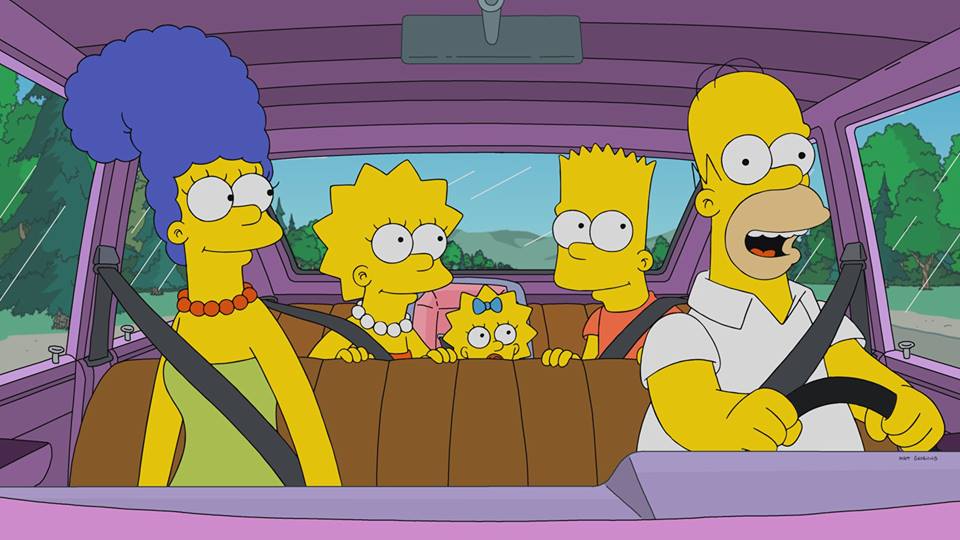Entertainment
‘The Simpsons’ takes online heat for seal clubbing ‘stupid Newfie’ joke

The hotly anticipated Canadian-themed episode of “The Simpsons” has opened a can of worms in the country’s easternmost province for a gag depicting its people as seal-clubbing “stupid Newfies.” (File Photo: The Simpsons/Facebook)
JOHN’S, N.L. — The hotly anticipated Canadian-themed episode of “The Simpsons” has opened a can of worms in the country’s easternmost province for a gag depicting its people as seal-clubbing “stupid Newfies.”
The episode, co-written by Canadian Tim Long, aired Sunday night and featured a segment where the character Ralph Wiggum shouts “I’m a Newfie” before beating the head off a stuffed toy seal.
Wiggum also performs a jig about life in Newfoundland while kicking the seal’s decapitated head in a circle and wearing it as a hat.
The term “Newfie” is considered a slur by many, with origins implying Newfoundlanders are unintelligent and lazy.
The clip was widely shared on social media as Newfoundlanders and Labradorians shared opinions on the joke, with some shrugging it off and others criticizing it as outdated, lazy stereotyping.
The terms “The Simpsons,” “Newfies” and “Newfoundlanders” were all trending on Twitter in St. John’s on Monday.
Newfoundland comedian Mark Critch of CBC’s satirical news show “This Hour Has 22 Minutes” said on Twitter it was “the lamest, least-interesting ‘Newfie’ joke I’ve heard.”
The clip also came under fire for attacking the province’s seal hunt. The gag shows Wiggum clubbing a young white coat seal, an age group that’s been illegal to hunt in Newfoundland and Labrador since the late 1980s.
The seal hunt has been condemned by environmental activists but defended by locals as a valued source of food, clothing and income.
In 2013, “The Simpsons” co-creator Sam Simon, who died in 2015, visited the province with actor Pamela Anderson to offer a $1 million incentive to help buy out sealing licences, meeting a frosty reception from local sealers.
St. John’s-based comedian Mike Hammond said he thinks some of the reaction to the term “Newfie” is overblown, but said he was wearied by the joke that made light of outdated, misinformed stereotypes about the place, particularly the representation of the seal hunt.
“I wasn’t offended as a Newfoundlander, I was offended as a comedian,” Hammond said in a phone interview.
“It’s such a lazy joke, taking a stereotype from 20 years ago. It’s kind of like doing a Monica Lewinsky joke right now, you know. It’s so out of touch and out of date.”
Hammond said he doesn’t use the term ‘Newfie’ in his own comedy material and said he’s not too bothered by the term, but he criticized the show for its lazy representation of the province.
“If you’re going to poke fun at this little isolated population, at least get something right about it.”
The clip seemed to poke fun at Canadians’ hypocrisy as a seemingly friendly population with negative attitudes towards other provinces, with characters telling Lisa Simpson they treat all people equally except “the Quebecois” and “stupid Newfies.”
Gerard Van Herk, a linguistics professor at Memorial University, said the term “Newfie” is less irksome to his younger students but seems to be especially insulting to older Newfoundlanders or those who have been on the receiving end of it.
“For 80 years, non-Newfoundlanders have never used that word, or hardly ever used that word, in a friendly, supportive way. It’s always been meant as a put-down,” Van Herk said.
The term is generally traced back to American, Canadian and British soldiers who used it as a negative descriptor of their Newfoundland colleagues during the Second World War.
“The fact that some Newfoundlanders have taken it back and use it among themselves doesn’t get rid of that original meaning,” he said.
Debate also swirled last year when the Twitter account for CNN’s “Parts Unknown” used the term “Newfie” to promote the Newfoundland-set episode of the travel series hosted by late celebrity chef Anthony Bourdain.
The account shared an article with Newfoundland-related books and local slang, urging readers to “Embrace the Newfies as they are.”
The tweet was deleted and the account issued an apology, but it sparked a conversation about the term’s usage as a badge of pride for some and negative slur for others.
Van Herk said the Simpsons clip has a more derogatory tone than the “Parts Unknown” gaffe, combined with the jabs at the seal hunt, which has been used to vilify Newfoundlanders as barbaric.
He said the show’s depiction of other Canadians’ attitudes towards Quebec and Newfoundland shows a poor understanding of a country that has largely moved on from the stereotypes of decades gone by, with more appreciation for the province’s artistic output than goofy rural stereotypes.
“It’s not part of everyday conversations about Newfoundland any more, so it’s weird when it gets recycled like this,” Van Herk said of the clip.
“It doesn’t seem like someone who has a clue about Canada was involved in writing it.”





















